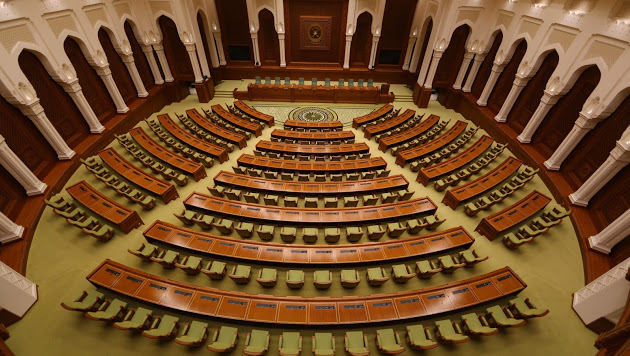
Muscat: A monumental achievement unfolded in the Sultanate of Oman as citizens enthusiastically participated in the Tenth term of Shura Council elections (2023-2027), marking an unprecedented milestone as the region's first fully-digitized election.
The groundbreaking event utilised an AI-powered mobile application named "Intakhib," allowing voters to conveniently cast their ballots.
The elections, held on October 29, 2023, witnessed a remarkable increase in voter turnout across the Sultanate, attributed to the user-friendly Intakhib app. The digital format, including the use of wireless mobile technology and innovative features like near field communication, audio reading, and sign language support for voters with disabilities, contributed to the success of the election.
Notably, overseas Omani voters participated earlier on October 22, showcasing the efficiency of the electronic voting system. The election recorded an impressive 65.88 percent voter turnout, with nearly 500,000 out of 753,260 registered voters exercising their right to vote for candidates competing for the 90 seats in the Shura Council. The results saw 61 new candidates elected.
A total of 843 candidates, including 32 women, contested the elections. Although women constituted 48 percent of the total number of voters, no female candidate could win a seat in the council.
This turnout marked the highest in 12 years, underscoring the growing civic consciousness and enthusiasm among citizens to actively engage in the democratic process.
The surge in voter turnout, a significant improvement from previous elections, reflected citizens' growing awareness and enthusiasm for participating in the democratic process and is a positive indicator of public engagement.
According to statistics available, voter participation was the highest in 2011 when there was a turnout of 77 percent. The turnout in 2015 came down to 57 percent, out of some 612,000 registered voters and fell yet again to 49 percent in 2019, out of some 713,000 registered voters.
This year's election saw the number of those who cast their vote increased by roughly 150,000 compared to the previous election, while the number of registered voters surged by around 40,000.
The Intakhib app streamlined various election processes, including candidacy registration, social engagement of voters, and vote counting, all conducted digitally. The transparency of the election was ensured by minimising human intervention and implementing digital monitoring. Additionally, measures were in place to address any potential injustices, allowing appeals and complaints to be submitted electronically.
The success of the digitisation process was evident in the reduction of dedicated staff from 8,000 to 500, and the elimination of physical polling stations. This marked a significant improvement over the previous election, where 110 polling stations were set up.
Nasser Al Balushi, a voter, highlighted the convenience of the digital approach, and said: “It saved time and allowed me to cast my vote from my office in Muscat.”
On November 9, Khalid bin Hilal Al Mawaali was re-elected as the Majlis A’Shura Chairman for the fourth successive term while two new deputy chairmen, Taher bin Mabkhout Al Junaibi and Said bin Hamad Al Saadi, were also elected.
Despite the overall success of the digitised election, the absence of female candidates elected to the Shura Council raises pertinent questions about gender representation.
The Shura Council, established in 1991, remains a key component of Oman's governance structure, with members elected for a four-year term and the authority to review, propose, and amend public and economic policies.
Oman's commitment to digital transformation in elections aligns with its Vision 2040 initiative, underscoring transparency, social participation, and individual voting rights.
The Shura Council election, the second nationwide electronic election, follows the municipal election in December 2022, and it reinforces Oman's position as a pioneer in embracing digital democracy within the GCC.
It is important to note the historical context, acknowledging Oman's journey towards democratisation, including granting women the right to vote and seek public office in 1994.
The Shura Council, alongside the appointed State Council, forms the "Council of Oman," representing the nation's only national body entirely comprised of democratically elected members.
The fully-digitised Shura Council elections in Oman signify a significant leap towards technological innovation in the electoral process, reflecting the nation's commitment to democratic values and civic engagement.